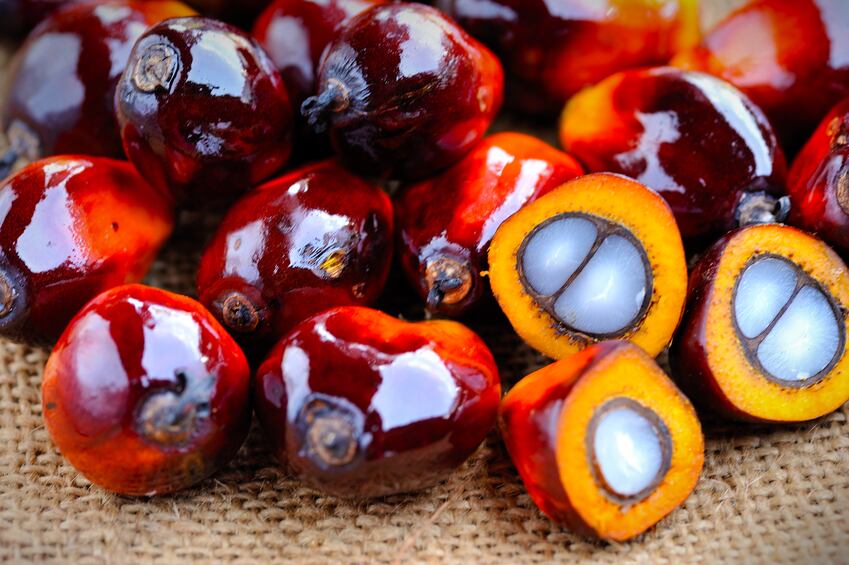The two clones of oil palm planting material – called Eka 1 and Eka 2 – have been registered in Indonesia’s Catalogue of Seeds and were approved for use in April by the country’s Ministry of Agriculture.
Eka 1 seedlings are expected to yield 10.8 tonnes of crude palm oil (CPO) per hectare at the palm’s prime age (between 10 and 18 years), with oil extraction levels of 32%.
Eka 2 seedlings, meanwhile, are expected to yield 13 tonnes per hectare and to generate oil extraction levels of 36%.
This is an increase of around one fifth from oil palms’ current capacity of between 7.5 and 8 tonnes per hectare per year under optimal conditions, said GAR, and significantly more than Indonesia’s industry average which sits at less than 4 tonnes.
Eka 1 and 2 also have a quicker time to harvest – 24 months – compared to the current industry average of 30 months.

Jo Daud Dharsono, president director of SMART Tbk, said the company was now looking to grow enough seedlings to roll out the oil palms across its plantations in Indonesia.
“For the higher-yielding Eka 1 and Eka 2 seedlings, the company first needs to multiply these via tissue culture to cultivate a sufficient quantity to plant over a large-scale commercial area,” he told this publication.
This process should take up to five years, said Dharsono, with GAR and SMART expecting to do the first large-scale planting in its estates in 2022.
SMART Tbk is a subsidiary of Singapore-listed Golden-Agri Resources, the world’s second largest palm oil plantation company.
GAR and its subsidiaries reported revenue of over US$2 billion for the first quarter of 2017.
GAR itself is the palm oil arm of one of Indonesia’s biggest conglomerates, Sinar Mas, and has operations in almost every step of the palm oil supply chain, from cultivating and harvesting to processing, refining and selling palm oil in the form of cooking oil, margarine, shortening and biofuel.
Its plantations are located in Indonesia while it also has a deep-sea port, crushing plants and production plants in China and Indonesia.
A long-term business investment
SMART researchers began testing palm trees in 2007, selecting the best specimens from over 4000 trees for its tissue culture programme, and planted the first clonal seedlings in 2011.
The project was funded through the company’s R&D budget, which saw it as a strategic investment.
“We see this as a long-term investment of our core business environment on which it relies, by increasing yield productivity, more yield per unit of land in a sustainable way will avoid the further expansion on new land,” said Dharsono.
In 2014, Greenpeace published a progress report on the firm which praised it for progress in a number of areas, however, it said it also found evidence that GAR had cleared 1000 hectares of high carbon stock (HCS) forest as well as smaller areas of peatland to make way for new plantations.
'Promising' palm oil
EKA 1 and 2 have already attracted the interest of other players in the supply chain.
Neil Blomquist, managing director of Natural Habitats, the company behind Palm Done Right, said GAR’s new palm variety “looked promising on the surface”.
Palm Done Right produces palm oil according to some of the strictest environmental and social criteria on the market, going far beyond RSPO standards. It has operations in Ecuador and Sierra Leone.
“I am encouraged by the SMART report, since getting more yield per hectare is going to help slow down the need for new planting ground and the resulting destruction of virgin or second growth rain forest,” said Blomquist.
“Our efforts to increase yields […] have been focused on creating a more fertile environment through the application of organic farming principals: increased micro biological activity in the soil, companion planting or natural pest control,” he said. “Results always vary, but we do see farmers who are committed to using these tools getting positive results with improved yields.”
Currently around 60% of GAR and SMART’s capacity is currently RSPO-certified. It said it plans to complete the RSPO certification process by 2020.
